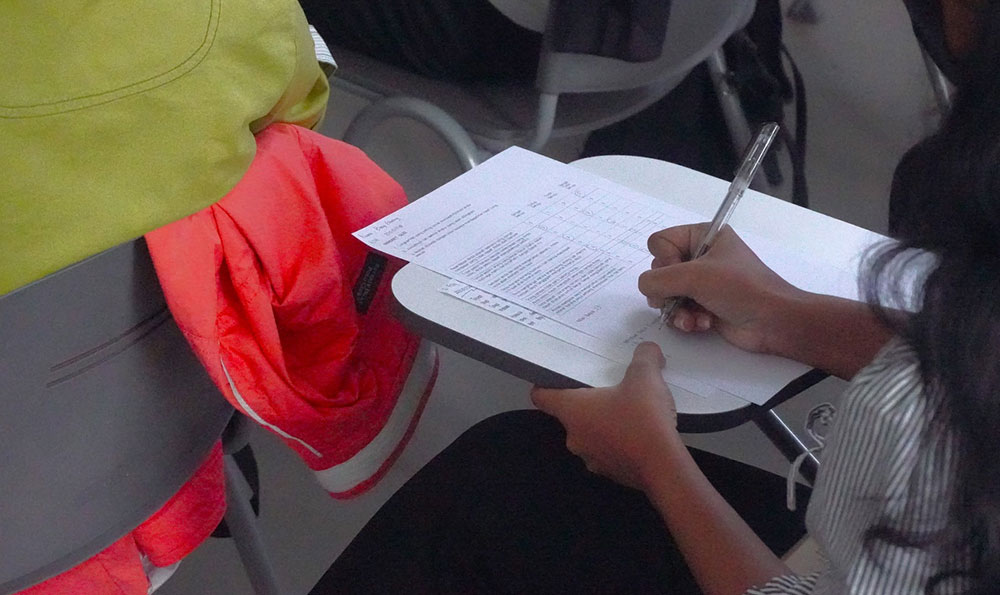有了所谓的高频词汇您认为就学得好吗?方法比单词更重要我是一个高考的过来人,高考成绩129分,平时大考碰狗屎运也考过130 的分数。首先我想请阁下明白一个道理冰冻三尺非一日之寒,所以坚持很重要,英语是一门很看重积累的科目。虽然我高考已经好多年了,而且今年即将大学毕业,踏入社会。但英语一直没有丢,英语一直是我的排头兵!我对英语的自信我觉得学好英语不难,重要的是你要有恒心,急躁冒进,三天打渔两天晒网都是不行的。在这里我就毛遂自荐一下我的学习方法吧:首先先你要端正心态,不要急躁,,你做你自己的事,这样才能静下心来学习。要成为英语高手就必须比别人走更多的路,做更多的事。你应该明白一个事实,英语是单词和语法的综合,所以单词和语法都要拿下。对于单词,有如下几种方法,第一个,是加强记忆的频度,也就是说,早上记了几个,隔几个小时又看一次,总之一天之内,记忆的间隔不要太长,否则你辛苦积累的记忆会随着时间的延长而淡化,第二个,是可以根据自己的理解编顺口溜,比如good morning 是狗摸你…(见笑了)…,第三个,记单词的时候,不要忘了阅读,一边记单词,一边看文章,这样可以把孤立的单词串联起来,记忆的效果会加倍,第四个。我建议你记单词要分门别类记忆,要形成一个意群,重要性用magnitude magnificence ,表示非常,大大地有exceedingly,tremendously,extremely……这样做在你写作时,是十分有好处的,写作时不要尽写一些低级词汇,你要写高级词汇,比如重要性写magnitude,许多写a multitude of 或者handsome。是语法。学习语法,首先要明白什么是主谓宾定状补,什么是系动词,什么是直接宾语,间接宾语,这些是学习语法的基础,语法是房子,主谓宾定状补等是沙石砖瓦。然后就要多做一些语法专项练习,并在此过程中不断并时时回顾那些了解,那些依然不理解,那些不理解的一定要花时间弄清楚,否则对自己的不负责将会导致英语语法一知半解的结局!这对于想成为英语高手的人来说,是十分不利的!(注:本人从开始时不知主谓宾,到熟练掌握语法,把语法书看了不下二十遍,书都翻烂了!莫笑本人愚笨……) 对于完形填空以及阅读理解,那就只能靠平时的练习了,你要时时纵深对比,千万不要陷入题海战术只做题,不总结的误区当中。在做题的过程中,你把各种体型都总结了一遍,积累了丰富的经验,而且你还提升了自己的阅读速度,一举两得,所以做题是很重要的!其实,完形填空无非就是单项选择加语境分析,也就是说,做完形填空你的语法要好,而且你要积累比较多的固定搭配,短语,特殊用法等,完形填空的语法还是很重要的!对于阅读,我个人感觉是,纯粹是个人经验积累多少的问题,只有保证一定的练习量,你才能用质的提高!我建议你,平时读报,或者做题的时候,发现有好的句子好的词汇,你要抄下来,长期下来,你的作文会有提高的,需要说明的是,这个提高过程可能很缓慢,但是最后能收到很好的效果,以前25分的作文我都能保证在21-23这个级别,靠的就是对语法的熟练掌握和积累了许多较高级的词汇,句型,句子。我个人的理解是,在你的语法达到基本不会出错的程度上,作文便应该以词汇取胜,因为在这个层次上,大家的语法都差不多,没什么变化,唯一有变化的就是你的词汇!给你打个比方吧,很多想到“许多”就用many,但是你别忘了many a ;handsome;massive,innumerable;很多人想到“专家”就写expert,但很少人会想到specialist,很多人在想到“擅长”这词,就写be good at ,却不知还有更高级的表达法:be expert at 或者excel in ……高手和庸才,就体现在这些细微的差别上 !!

英语高考高频词汇
高考英语阅读的高频词汇 在历年高考英语试卷里有很多常见英语短语,同学们在复习英语时要特别注意这些词汇,那么高考英语阅读常考词汇有哪些?下面由我为大家整理有关高考英语阅读常考词汇的资料,供参考! 高考英语阅读的高频词汇 篇1 1.alter v. 改变,改动,变更 2.burst vi./n. 突然发生,爆裂 3.dispose vi. 除掉;处置;解决;处理(of) 4.blast n. 爆炸;气流 vi. 炸,炸掉 5.consume v. 消耗,耗尽 6.split v. 劈开;割裂;分裂 a.裂开的 7.spit v. 吐(唾液等);唾弃 8.spill v. 溢出,溅出,倒出 9.slip v. 滑动,滑落;忽略 10.slide v. 滑动,滑落 n. 滑动;滑面;幻灯片 11.bacteria n. 细菌 12.breed n. 种,品种 v. 繁殖,产仔 13.budget n. 预算 v. 编预算,作安排 14.candidate n. 候选人 15.campus n. 校园 16.liberal a. 慷慨的;丰富的;自由的 17.transform v. 转变,变革;变换 18.transmit v. 传播,播送;传递 19.transplant v. 移植 20.transport vt. 运输,运送 n. 运输,运输工具 21.shift v. 转移;转动;转变 22.vary v. 变化,改变;使多样化 23.vanish vi. 消灭,不见 24.swallow v. 吞下,咽下 n. 燕子 25.suspicion n. 怀疑,疑心 26.suspicious a. 怀疑的,可疑的 27.mild a. 温暖的,暖和的;温柔的,味淡的 28.tender a. 温柔的;脆弱的 29.nuisance n. 损害,妨害,讨厌(的人或 事物) 30.insignificant a. 无意义的,无足轻重的;无价值的 31.accelerate vt. 加速,促进 32.absolute a. 绝对的,无条件的;完全的 33.boundary n. 分界线,边界 34.brake n. 刹车,制动器 v. 刹住(车) 35.catalog n. 目录(册) v. 编目 36.vague a. 模糊的,不明确的 37.vain n. 徒劳,白费 38.extinct a. 绝灭的,熄灭的 39.extraordinary a. 不平常的,特别的,非凡的 40.extreme a. 极度的,极端的 n. 极端,过分 41.agent n. 代理人,代理商;动因,原因 42.alcohol n. 含酒精的饮料,酒精 43.appeal n./vi. 呼吁,恳求 44.appreciate vt. 重视,赏识,欣赏 45.approve v. 赞成,同意,批准 46.stimulate vt. 刺激,激励 47.acquire vt. 取得,获得;学到 48.accomplish vt .完成,到达;实行 49.network n. 网状物;广播网,电视网;网络 50.tide n. 潮汐;潮流 高考英语阅读的高频词汇 篇2 1. UFO n. 不明飞行物;飞碟 例句:Have any of you actually seen a UFO? 你们中间是不是有人确实看到过飞碟? 2. barber n.(为男子服务的)理发师 例句:Im going to ask the barber not to cut my hair too short. 我会要求理发师别把我的头发剪得太短。 3. barber shop n. 理发店 例句:I wont go to that barber shop anymore. 我再也不会去那家理发店了。 4. bathroom n. 浴室;盥洗室 例句:Every room in the hotel has a private bathroom. 旅馆中的每个房间都有一个单独浴室。 5. bedroom n. 卧室;寝室 例句:Her bedroom is covered with posters. 她的卧室里满是画片。 6. kitchen n. 厨房 例句:They usually eat their breakfast in the kitchen. 他们通常在厨房吃早饭。 7. get out v. 出去;离开 例句: I saw a couple of men get out. 我看见有几个人出去了。 8. cut v. 剪;切;割 例句:Dont cut your finger on the broken glass. 别让碎玻璃割伤你的手。 9. alien n. 从另一个世界来的生物;外星人 例句:I dont believe that there are aliens exist in the world. 我不相信这个世界上有外星人存在 10. bought v. buy的过去式 例句:He bought some candies for me. 他给我买了一些糖果。 11. land v. 着陆 例句:The plane circled the airport before landing. 飞机在着陆之前在机场上空盘旋。 12. got v. get的过去式 例句:I finally got my call through. 电话总算通了。 13. shirt n. 衬衫;衬衣 例句:I have many shirts of different colors. 我有很多不同颜色的衬衣。 14. take off v. 起飞 例句:The plane took off despite the fog. 尽管有雾,飞机仍照常起飞。 15. while conj. 当…的时候 例句:Strike while the iron is hot. 趁热打铁。 高考英语阅读的高频词汇 篇3 fare n. (车、船等)费 farewell int. 再会;n. 告别,欢送会 farm n. 农场,饲养场;v. 耕作 farmer n. 农夫,农场主 farming n. & a. 农业(的) fascinate a. 迷住,强烈的吸引 fascinating n. 迷人的,醉人的 fascination n. 迷惑力,迷恋 fashion n. 时尚,时装,风格,式样 fashionable a. 时髦的,高级的 fast 1 a. 快的,迅速的,坚固的,牢固的;ad. 紧紧地,牢固地,迅速地 fasten v. (使)固定,系牢,绑紧,扣紧 fat a. 肥胖的,脂肪多的;n. 脂肪 fatal a. 致命的,关键的 fate n. 命运 father n. 父亲,创始人,发明者,神父,上帝 fatigue n. & v. 疲劳,疲乏 fault n. 过失,缺点,故障 faulty a. 有错误的,不完善的 favor n. 赞赏,嘉许,偏袒,偏爱,恩惠,善行;vt. 偏爱,赞同 favorable a. 有利的,赞同的`,满意的 favorite a. 心爱的;n. 物别受人喜欢的人(物) fax n. 传真 fear n. 恐惧;v. 害怕,担心 fearful a. 可怕的,担心的 feasible a. 可行的,可能的 feast n. 宴会,宗教节日;v. 宴请 feather n. 羽毛 feature n. 特征,特色,脸上的一部分,五官之一(报纸的)特写 高考英语阅读的高频词汇 篇4 一、 按大词(动词、名词)记忆 look 的常用短语: look up ? in查找 look sb. up and down 上下打量 look back to/ upon回顾 look upon?as把? 看作 look forward to期待 look through浏览; 看穿 take a new look呈现新面貌 fear的常用短语: in fear害怕地 (be) in fear of 害怕 for fear of/ that担心;生怕 concentrate 的常用短语: concentrate on 专心? concentrate one’s mind on 专心于? 类似的短语: fix one’s mind upon focus on put one’s heart into focus one’s mind on surprise常用短语: in surprise惊讶地 to one’s surprise 使某人惊讶的是 be surprise at/to do/that 对某事感到惊讶 表示“穿衣”的动作或状态的词和短语 1.表示动作的有: pull on put on dress dress sb 2. 表示状态的有: wear be in be dressed in have … on 常见表“喜欢”的短语和单词 like care for be attached to be keen on be fond of take delight in… trouble的常用短语: have much trouble / no trouble (in) doing 在?有/没有困难 take great trouble to do 不辞辛劳做某事 put sb to the trouble of doing … 为难某人做某事 make trouble捣乱 be in (great) trouble 惹麻烦;处在困境中 help sb. out of trouble 帮某人摆脱困境 end的常用短语: come to an end??结束 put an end to 结束?? on end竖起, 连续 in the end终于; 最后 end up (by) doing?以??结束 make both ends meet收支相抵 表示“导致”、“由?引起”的短语: 1. 导致 cause sth. (to do) result in lead to 2. 由??引起 be caused by result from grow out of lie in 表“全力以赴”的短语: do / try one’s best spare no efforts to do take great pains to do go all out to do do what somebody can (do) to do do all somebody can (do) to do direction常用短语: in (the ) direction of?.朝??方向 under the direction of ...在??的指导下 follow the directions照说明去做 far常用短语: far from (being)离??要求相差很远 far from (a place)距离某地很远 far away遥远 so far 到目前为止; 那么远 as far as sb. knows/sees据某人所知 by far (最高级前,比较级后)起强调作用 distance常用短语: in the distance在远处 from/ at a distance从远处 keep sb. at a distance 于某人保持一定距离 It is no distance at all.不远 use常用短语: used to do过去曾经、常做 be used to doing ?习惯于?? be used to do被用来做?? make good/ full use of充分利用?? come into use开始使用?? it is no use doing ?干??没有用 “出了什么事”的几种不同表达 What’s wrong with….? What’s the matter with…? What’s the trouble with…? What happened (to sb.) ? “众所周知”常用表达法: It is known to all that?主语从句,that不能省 As is known to all,定语从句,置于句首 We all know (that)后接宾语从句 Everyone knows (that)后接宾语从句 , which is known to all.非限定从句,置于句末 表“同意某人意见”的常用短语: agree with sb. /what sb. said agree to sth. approve (of) sth. in favour of sth. be agreeable to sth. be for sth. “不同意” disagree with sb./ what sb. said object to sth. disapprove (of) sth. be against sth. sign的常用短语: sign one’s name签名 sign to sb (not) to do sth. 示意某人(不)做某事 signs of … ??的迹象 would rather 与 prefer 的区别 1.宁愿做??而不做?? would rather do A than do B prefer A to B prefer to do A rather than do B 2. would rather 主语 过去式,表示“宁愿” eg. I would rather you came tomorrow than today. should prefer sb. to do sth./ should prefer 主语 过去式,表示“比较喜欢??” eg. I should prefer you not to go there alone. OR: I should prefer that you did not go there alone. trap常用短语 be caught in a trap落入圈套 be led into a trap中圈套 set a trap to do sth.设圈套?? be trapped in sth.被?..所围困 grow常用短语 in the grow of在?.成长中 grow up长大; 成长 grow rich on靠?.. 变富 grow into长成?? grow out of由?..引起/滋生出 make常用短语 be made up of =consist of 由??组成 make up for弥补 be made from/ of由??造成 make up编造;组成;化妆 be made into制成?? make fun of取笑; 嘲弄 make a living 谋生 supply, provide, offer 的区别: 1.表示“向某人提供某物” supply / provide sb. with sth. supply / provide sth. for sb. supply sth. to sb. offer sb. sth. 2. 表示“主动提出做某事” offer to do sth. 3. 表示“倘使”、“假如” provided / providing that = on condition that =only if 4. 表示“满足需要”supply / meet a need. supply的常用短语 in short supply 缺乏,不足 medical/military supply医疗/军用品 supplies of?许多 lack的常用短语 be lacking in sth. 在??不足 make up for the lack of 弥补??的不足 for/by/from/through lack of… 由于?不足,缺乏 have no lack of不缺 damage的常用短语 do damage/harm to 对??有害 cause damage to 对??造成损害 ask for damage要求赔偿 die of 与die from 的区别 ;

英语高考高频词汇800词
考试总有一些知识是重点,英语也一样,有一些是核心考点,基本上是逢考必有。我整理了45个高考英语高频词汇2020(逢考必有),供大家参考借鉴。 45个高考英语高频词汇2020(逢考必有) 1. cost The ticket cost me ten dollars.(此句中cost用作及物动词,意为“花费”,这是cost的常用法之一。) The cost of living is much higher now than it was two years ago. (此句中cost用作名词,意为“价格,成本,费用”,这是它的常用法之二。) cost除了以上用法外,还有 其它 用法。如: ① Has this project been costed? (cost用作及物动词,意为“估价,估计成本”。) ② I must get the book at all costs. (at all costs意为“无论如何,不惜任何代价”。) ③ She saved him from drowning, but at the cost of her own life. (at the cost of sth.意为“以牺牲某事物为代价”。) 2. deal Teachers should deal fairly with their pupils. (此句中deal用作不及物动词,常和with连用,意为“对待”,这是deal的常用法。) deal还有其它用法。如: ①She spent a good deal of money on new clothes. (a good deal of意为“很多,大量”后接不可数名词。) ②We tried to make sure everyone got a fair deal. (a fair deal意为“公平的待遇”。) ③My bank deals in stocks and shares now. (deal in意为“经营”。) ④The teacher dealt out the test papers to the students. (deal out意为“分发”。) 3. interest interest在教材中的意思为“兴趣”和“使感兴趣”,分别作名词和动词用。 The money I borrowed from him was repaid with interest. What he did was just to protect his own interests. 上面 句子 中的两个interest都作名词用。作“利息”讲时,为不可数名词;作“利益,好处”讲时,多用复数形式。 第一句可译为“我向他借的那笔钱是带息偿还的。”;第二句可译为“他所做的一切仅仅是为了保护他自己的利益。” 4. drive Can you drive a car? (drive用作动词,意思为“开车,驾驶”,是教材中的第一种用法。) Let’s go for a drive in the country. (drive用作名词,意思为“驱车旅行”,是教材中的第二种用法。) 除了以上用法外, drive还有其它用法。如: ①The workers carried on a drive for greater efficiency last month. (drive用作名词,意思为“运动”。) ②There are three buses parked on the drive. (drive用作名词,意思为“车道”。) ③Poverty drove the little boy to steal. (drive用作动词,意思为“驱使”。) ④I’m sure that I’ve driven my opinion home.(drive sth. home意思为“把……讲透彻,使充分理解”。) ⑤Please drive the dog away. (drive sb./sth. away意思为“把……赶跑”。) 5. join v.& n. What club do you want to join?(此句中的join是及物动词,意为“加入,参加”,这是其最常见的用法。) 另外它还有其它用法。如: ①The two rivers join at the bridge.(此句中的join是不及物动词,意为“会合,联合,相遇”。) ②The two pieces were stuck together so well that we could hardly see the join.(此句中的join是名词,意为“连接处,接缝”。) 6. dream dream在教材中有两种用法:用作动词时意思为“做梦,梦到”;用作名词时意思为“梦想,幻想”。 dream除了以上用法外,还有以下几种用法。如: Her new dress is an absolute dream. (dream用作名词,意思为“美丽或美好的人或事物”。) My aunt’s wedding ceremony went like a dream. (go like a dream是固定 短语 ,意思为“非常顺利,完美”。) 7. know I’ve known David for 20 years. I hope we have taught our children to know right from wrong. The old man has known both poverty and wealth. know在教材中的意思为“知道,了解”,作动词用。在上面的三个句子中, know都作动词用,第一个know的意思为“认识”;第二个know的意思为“区分”;第三个know的意思为“亲身经历”。 8. fail If you don’t work hard, you may fail.(此句中fail意为“失败;不及格,没有通过考试”。) fail还有其它用法。如: ① He never fails to write to his mother every week. (fail意为“忘记、忽视或未能做某事”。) ② She has been failing in health. (fail in意为“(健康状况)衰退”。) ③ His friends failed him when he most needed them. (fail意为“使失望, 辜负”。) ④ I had three passes and one fail. (fail用作名词,意为“考试不及格”。) ⑤ I’ll be there at two o’clock without fail. (without fail意为“肯定,一定,必定”。) 9. lead lead在教材中有两种用法:用作动词时意思为“引导,领导”;用作形容词时意思为“领导的,领先的,带领的”。 除了教材中的用法外,lead还有以下几种用法。如: Which road leads to the mountain? (lead用作动词,意思为“通向,通往”。) My grandmother is leading a quiet life in the countryside. (lead用作动词,意思为“过某种生活”。) Not having a balanced diet can lead to health problems. (lead用作动词,意思为“导致”。) Her brother took the lead in the high jump. (lead用作名词,意思为“领先地位”。) In this new film, she is the lead. (lead用作名词,意思为“主角”。) 10. fall The leaves fall in autumn. (此句中fall用作动词,意为“落下,下降”,这是其常用法。) fall还有其它用法。如: ①I had a fall and broke my arm. (fall用作名词,意为“跌落,掉下,降落”。) ②Our holiday plans fell through because of bad weather. (fall through 意为“落空,未能实现,成为泡影”。) ③My car is falling apart. (fall apart意为“破裂,破碎,散架”。) ④We fell about (laughing) when we heard the joke. (fall about意为“无法控制地大笑”。) ⑤Sam, please fall back on old friends in time of need. (fall back on意为“求助于,退到”。) 11. low The sun is low in the sky. (此句中low用作形容词,意为“低的,矮的”,这是low的常用法。) low还有其它用法。如: ① She’s been feeling rather low since her illness. (low用作形容词,意为“消沉的”。) ② The simplest way to succeed in business is to buy low and sell high. (low用作副词,意为“低价地,廉价地”。) ③ The gas is running low. (run low意为“几乎耗尽”。) 12. blind She is blind in the left eye. (此句中blind用作形容词,意为“瞎的,盲人的”,这是blind的常用法。) blind还有其它用法。如: ① The blinds were drawn to protect the new furniture from the sun. (blind用作名词,意为“窗帘,遮光物”。) ② The soldier was blinded in the explosion. (blind用作动词,意为“使失明”。) ③ This is a blind letter. (blind letter意为“因地址写得不清而无法投寄的信件”。) ④ He turned a blind eye to her mistakes. (turn a blind eye to意为“对……熟视无睹”。) ⑤ He’s blind as a bat without his glasses. (blind as a bat意为“完全看不见东西的”。) 13. film 大家都很熟悉film作名词时有“电影”的意思。 除此之外film还有其它的意思。如: ①I put a new roll of film in my camera. (film在此句中作名词,意思为“胶卷,胶片”。) ②It took them nearly a year to film this TV series. (film在此句中作动词,意思为“拍摄”。) 14. land The pilot landed the plane safely in the heavy snow. (此句中的land用作及物动词,意为“使着陆”,这是land的常用法之一。) The journey to the far side of the island is quicker by land than by sea. (此句中的land用作名词,意为“陆地,大地”,这是land的常用法之二。) 除了以上用法外,land还有其它用法。如: ① Many farmers are leaving the land to work in industry. (the land意为“农村,农业”。) ② The car will land you there in twenty minutes.(land用作动词,意为“使到达,把……送到某地”。) ③ He’s really landed himself in it this time. (land sb. / oneself in sth. 意为“使某人陷入困境”。) ④ He wants to see how the land lies before taking any action.( how the land lies意为“事态,形势,概况”。) 15. cause She’s always causing trouble. (此句中cause用作及物动词,意为“使发生,引起”,这是cause的常用法。) cause还有其它用法。如: ①Smoking is one of the causes of heart disease. (cause用作可数名词,意为“原因,理由”。) ②People fought for the cause of freedom and peace. (cause用作名词,意为“事业,目标”。)
















